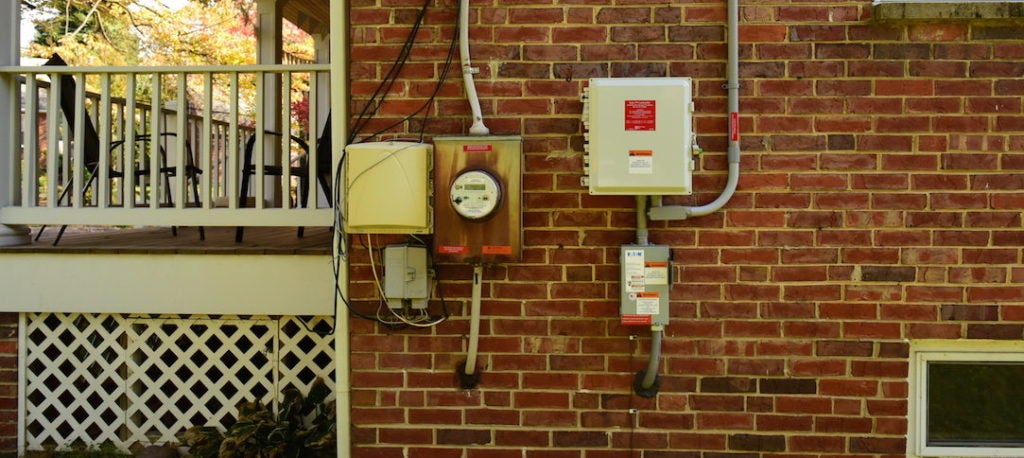Solar United Neighbors testifies against Duquesne Light’s proposed rate increase

On June 14th, I joined other energy advocates and Duquesne Light customers at a Public Utility Commission Public hearing to speak out against that utility’s request to raise our electric bills. In addition to raising the distribution rate, Duquesne wants to raise the customer charge, which would make it harder for its customers to see savings from going solar. Thank you to everyone who signed our petition in protest of this rate hike.
Below, please see my prepared remarks for the hearing, which I submitted in addition to the names of all of our petition signers.
Solar United Neighbors Remarks on PUC Docket No. R-2018-3000124
June 14th, 2018
1 pm
PUC Public Hearing
Piatt Place Room 2019 301 Fifth Avenue Pittsburgh, PA 15222
My name is Henry McKay and I am the Pennsylvania Program Director of Solar United Neighbors. We are a nonprofit organization that helps people go solar, join together, and fight for their energy rights.
Today I am speaking on behalf of Solar United Neighbors of Pennsylvania and the Duquesne Light customers who have signed our petition in opposition to this proposed increase in our electricity costs. I am also speaking on behalf of myself, a Duquesne Light customer.
We support maintaining and upgrading our electrical grid to be more resilient and capable of integrating solar, battery storage, EVs, and other forms of clean energy. We understand that customers may need to shoulder some of the costs of modernizing the grid. However, we strongly believe that increasing the fixed charge, or customer charge, is a fundamentally unfair way to raise revenue.
Higher fixed charges erode customer control over our energy costs by weakening the connection between our actual electricity usage and our bills. In doing so, they discourage people from adopting energy efficiency measures and installing solar photovoltaic systems. This is particularly troubling because Allegheny and Beaver Counties each recently earned a grade of ‘F’ on the American Lung Association’s State of the Air Report Card. By discouraging distributed solar energy and energy efficiency, higher fixed costs weaken two of our most important tools to improve our air and protect our health.
Higher fixed costs are also regressive in that they disproportionately burden lower-income ratepayers. The proposed cost increase would make up a larger share of a lower-income ratepayer’s monthly budget and reduce their control over their costs. Additionally, the proposed rate increase will likely discourage moderate- and low-income households from investing in solar.
To illustrate this point, consider three hypothetical homeowners who are interested in installing a solar photovoltaic system that would produce just over 90% of their annual electricity usage. Keep in mind that the central metric for most people considering going solar is how much money they can save on their electric bill.
Solar United Neighbors estimates that under Duquesne Light’s proposed new rates, a homeowner with 10,000kwh of annual electricity usage considering a 7.5kw solar system would see their expected year one savings fall by $1.56. A homeowner with only 4,000kwh of annual usage considering a 3kw solar system would see their expected year one savings fall by $14.30 under the proposed rates. And finally, a homeowner with 3000kwh of annual usage considering a 2.3kw solar system would see their expected annual savings fall by $16.11 under the proposed rates.
If we assume that annual electricity usage generally correlates with income, it’s clear that the disincentive to go solar created by the proposed rates is stronger for lower-income households. This is fundamentally unfair, disproportionately impacting those families that could most benefit from lower energy prices through rooftop solar.
Instead of discouraging people from weatherizing their houses or going solar, Duquesne Light should consider alternative ratemaking systems that support and reward clean and efficient energy while still providing adequate revenue, according to the PUC’s recent guidance to utilities (Docket Number M-2015-2518883). The existing ratemaking paradigm rewards consumption and inefficiency by compensating utilities based largely on the volume of electricity they sell. Since utilities are beholden to profit-seeking shareholders, this paradigm inevitably puts them in conflict with the public’s interest in reducing energy consumption and controlling electricity costs.
Instead, utilities should be financially rewarded based on how well they achieve broadly supported goals that benefit the public. A ratemaking paradigm that is performance-based, not volume-based, would allow utilities and their customers to work together towards the cleaner, fairer energy system of the future. And crucially, it would reduce the need for fixed charge increases such as this one.
It’s time for the Commission to take a firm stand against unfair fixed charges and support performance-based ratemaking.
Thank you.
If you are a Duquesne Light customer, you can make your voice heard. To protest this unfair rate hike, call 1-800-692-7380 or write a letter to:
Pennsylvania Public Utility Commission
Bureau of Consumer Services
P.O. Box 3265
Harrisburg, PA 17105
Be sure to mention Docket No. R-2018-3000124 in your comments!
